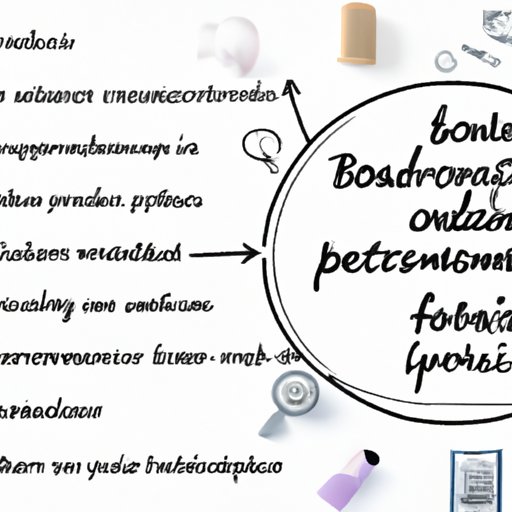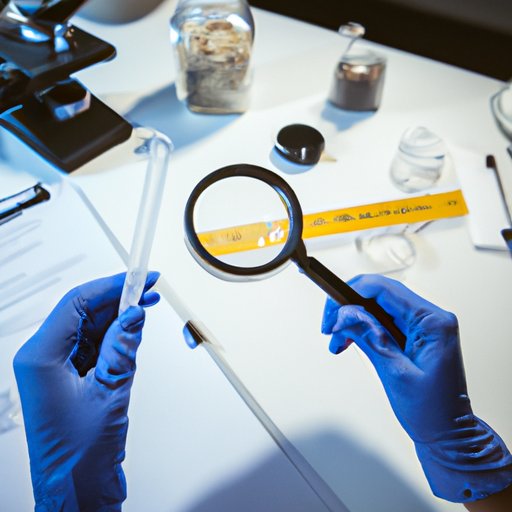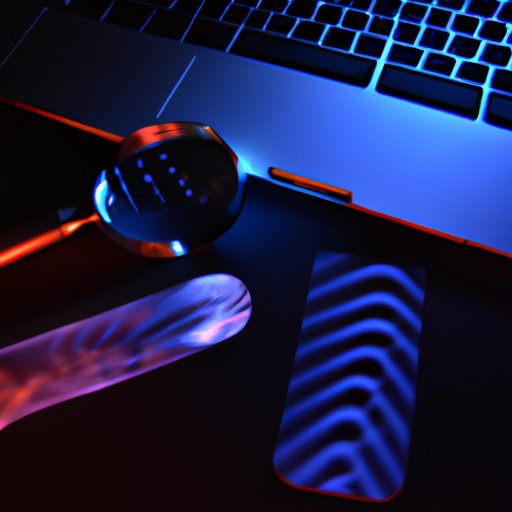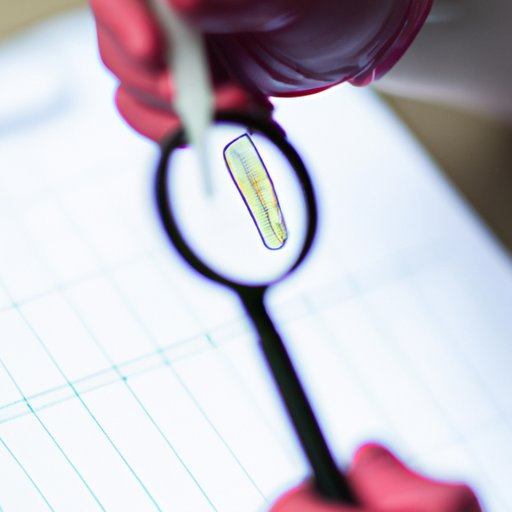Introduction
Forensic science is a field of science that involves the application of scientific knowledge to legal issues. It has been used to help solve some of the most heinous crimes in history, as well as to exonerate those who have been wrongfully convicted. But what exactly does forensic science do?
What is Forensic Science?
Forensic science is the application of scientific principles and techniques to the investigation of criminal activity. It includes the examination of physical evidence, such as fingerprints, fibers, and blood spatter, as well as the analysis of biological evidence, such as DNA and other bodily fluids. In addition, forensic science can be used to analyze data from digital devices, such as computers and cell phones.

Overview of Uses and Benefits
Forensic science is used by law enforcement agencies and other organizations to investigate crimes. It can provide vital information about suspects, victims, and their involvement in the crime. By analyzing evidence, forensic scientists can help identify suspects, establish links between people, places, and events, and determine the cause of death. Furthermore, forensic science can be used to document and preserve evidence for use in court proceedings.
Investigating Crimes with Forensic Science
Forensic science plays an important role in the investigation of criminal cases. It can provide valuable insight into the circumstances surrounding a crime, as well as help to identify suspects or exonerate innocent individuals. The following are some of the ways forensic science is used in crime investigations:
Examining Physical Evidence
Physical evidence, such as fingerprints, fibers, and blood spatter, can provide invaluable information about a crime. By examining this evidence, forensic scientists can help to identify suspects, establish links between people, places, and events, and determine the cause of death. For example, a fingerprint left at the scene of a crime can be used to identify a suspect, while fibers found on clothing can be used to link someone to a particular location or event.
Analyzing Biological Evidence
Biological evidence, such as DNA and other bodily fluids, can also provide important clues about a crime. DNA analysis can be used to identify suspects, as well as to link them to specific crime scenes. In addition, biological evidence can be used to establish time of death, determine the cause of death, and even identify unknown victims.
Collecting and Processing Data
Data collected from digital devices, such as computers and cell phones, can also be used to investigate crimes. Forensic scientists can use this data to reconstruct events leading up to the crime, as well as to identify suspects. This data can also be used to link suspects to certain locations and activities.

Examining Evidence in the Crime Lab
Once evidence has been collected, it is then sent to the crime lab for further analysis. In the crime lab, forensic scientists use a variety of techniques to analyze evidence and draw conclusions. The following are some of the techniques used by forensic scientists in the crime lab:
Techniques Used to Analyze Evidence
Forensic scientists use a variety of tools and techniques to examine evidence. These include chemical tests, microscopy, spectroscopy, chromatography, and DNA analysis. By using these techniques, they can identify and analyze evidence, as well as establish links between people, places, and events.
Establishing Links Between People, Places and Events
Forensic scientists can use evidence to establish links between people, places, and events. For example, they can use DNA evidence to link a suspect to a crime scene, or use fingerprints to link a suspect to a particular object. They can also use evidence to reconstruct events leading up to the crime, as well as to identify unknown victims.
Documenting and Preserving Evidence
Forensic scientists are responsible for documenting and preserving evidence for use in court proceedings. They must ensure that evidence is properly handled and stored, so that it remains admissible in court. In addition, they must document all evidence in detail, so that it can be used to support or refute a case in court.
The Role of Forensic Scientists in Courtrooms
Forensic scientists play an important role in courtrooms. They often testify in trials, providing expert testimony on the evidence presented. Additionally, they work with law enforcement agencies to analyze and interpret evidence, and can provide valuable insight into a case. Finally, forensic scientists can provide expert advice on the proper handling and storage of evidence, ensuring that it remains admissible in court.

Advances in Forensic Science Technology
In recent years, there have been significant advances in forensic science technology. New technologies have been developed for identifying and analyzing evidence, including automated laboratory processes and advanced DNA analysis techniques. Additionally, new methods for collecting and processing digital evidence have been developed, allowing investigators to access more data than ever before.
Conclusion
Forensic science is a powerful tool for investigating criminal cases. It is used to examine physical and biological evidence, analyze data from digital devices, and establish links between people, places, and events. Forensic scientists also play an important role in court proceedings, testifying in trials and providing expert advice on the handling and storage of evidence. Moreover, advances in forensic science technology have allowed investigators to access more data than ever before. Through the use of forensic science, investigators are able to solve complex cases and bring justice to victims of crime.
(Note: Is this article not meeting your expectations? Do you have knowledge or insights to share? Unlock new opportunities and expand your reach by joining our authors team. Click Registration to join us and share your expertise with our readers.)
